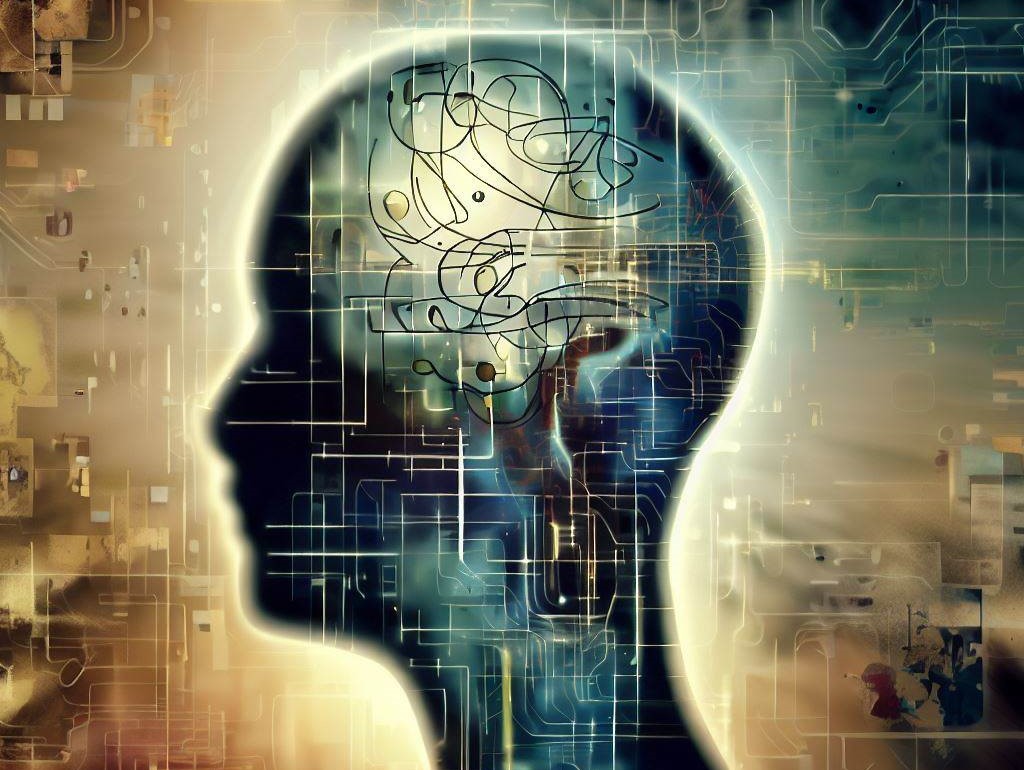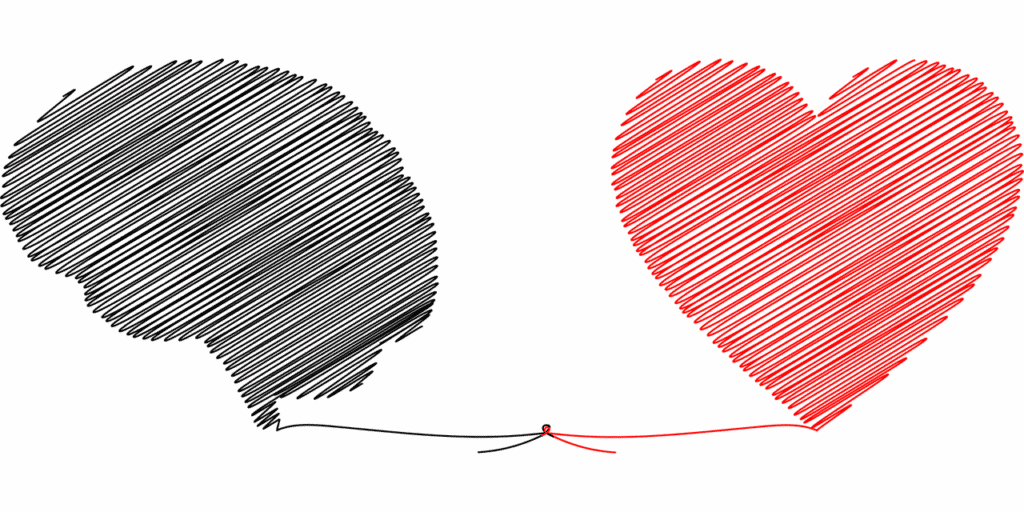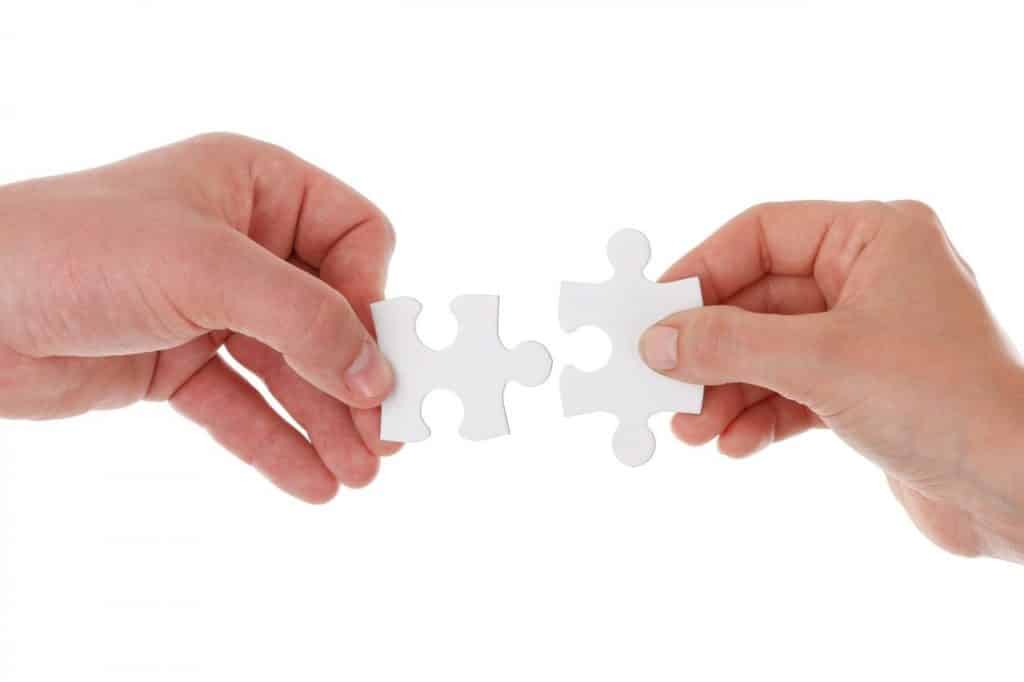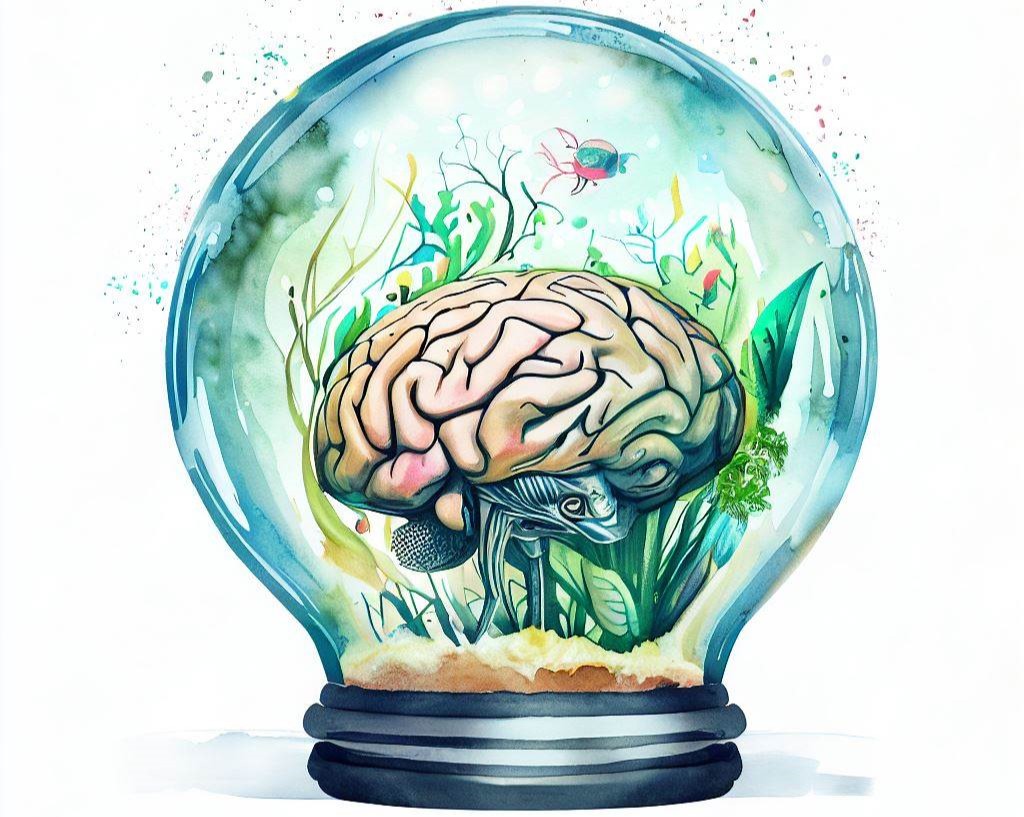The concept of personal ecosystems is a holistic approach to personal development, as there’s always a cause-and-effect relationship between what we experience, and why we’re experiencing it.
No area of your life is an island, which is why it’s important to view personal development as an interconnected web of experiences, rather than isolated skill sets that only serve a single function.
Conventional methods of personal development compartmentalize our physical, mental, emotional, and spiritual well-being. You might not think there’s a relationship between your social skills and your mental health, or perhaps your confidence and perception of life, but these seemingly separate aspects of your life experience are interdependent.
Every trait, characteristic, mindset, skill, and ability that you have is reliant on other parts of you, and this is what the personal ecosystem approach to personal development is about: Looking at the whole, not the isolated aspects.
Everything that you experience is connected in some way, as your life experience is the collective of everything you’ve learned. Every aspect of yourself spills into other areas of your life experience, meaning that if you want to improve a skill, you’ll need to improve other areas that support that skill.
Confusing? Well, let’s look at the approach of personal ecosystems to explore this phenomenon, and why taking this approach is going to completely change your relationships with personal development.
What is a personal ecosystem?

Imagine yourself as an ecosystem. Every element of who you are works together to create a functional whole. Just as a healthy ecosystem requires a delicate balance of organisms and environmental factors, your personal ecosystem thrives when you cultivate a harmonious equilibrium among all dimensions of your life experience.
If your social skills are lacking, it’s going to make many areas of your life more difficult. This lack of skills will also affect your work life, your dating life, your access to opportunities, and perhaps your confidence or self-esteem. Likewise, if you have some pretty deep trauma, it’s going to affect more than just your own mental health. It’s also going to impact things like your social life and work life.
Your growth is not limited to the enhancement of specific skills. While skill development is necessary, it’s just one piece of the personal development puzzle. Your relationships, emotional intelligence, habits, self-awareness, and even the environments you spend your time in collectively contribute to your overall well-being.
This is how you should perceive your journey of personal growth, that your well-being is an ecosystem that is healthy, unhealthy, or anywhere in between. To learn more about the personal growth journey, I suggest you read the article below for a deeper understanding of what personal development is.
Understanding personal ecosystems: There's always a root cause
When you’re trying to develop any particular area of your life, you’ll discover deeper layers that need to be worked on. When you start digging into those deeper layers, even more layers are discovered.
Ever find yourself in this situation? You just want a simple fix for one issue, then suddenly there are ten different things that you need to work on.
So let’s say you want to improve your social skills because you struggle to make fulfilling connections with people. You realize that it’s not just a single skill set that you need to work on, so you break it down into some key skill sets. Some of the things you need to work on involve:
- Improving your communication skills
- Making stronger first impressions
- Improving your confidence
- Becoming more self-assertive
Just by trying to improve one skill set, you realize that it branches into many different skill sets. Now you think ‘Okay, I’m going to start by building my confidence‘, so you start learning how to do that, and this one characteristic branches into many other areas that need to be worked on. Some of these areas include:
- Be more outgoing
- Stop seeking approval
- Desensitize from the fear of rejection
- Heal your abandonment wound
Suddenly, there’s a deeper layer of things that you need to work on just to improve your confidence. When you look into one of those improvements, it just leads you further down the rabbit hole.
What this tells you is that every element of self-improvement has a prerequisite. Every prerequisite has other prerequisites. Everything is connected in a web, meaning that if you develop one area of your life, you’re vicariously working on others too.
Therefore, instead of viewing personal development as working on individual aspects of yourself, don’t solely focus on learning what’s directly associated with that area of improvement.
Instead, work on everything bit by bit, and don’t neglect any areas of your life experience. Cast a broader net, and you’ll find that it’s a more efficient approach.
As you learn more valuable information regarding personal development, start applying it to your life immediately, regardless of whether it’s related to what you want to improve, or not. Take the wholesome approach to personal development, and you’re going to create a thriving, sustainable personal ecosystem.
Interconnected areas of your personal ecosystem

The four major areas of your well-being are the physical body, the mental body, the emotional body, and the spiritual body. Everything that we experience ties into these four bodies. To live a life at your optimal ability where you can achieve an amazing quality of life, it’s important not to neglect any one of these bodies.
Here we’ll have a look at what they are. To learn more about these corners of your well-being, read the article below:
The physical body
Your physical health is a core component of your life experience. If you are in poor health, you’re not going to have the energy or motivation to improve other areas of your life. The state of your body is also a reflection (and manifestation) of the deeper workings of your mind and spirit. They are generally congruent.
When you’re feeling at your best physically, you have a much better platform to improve the other aspects of yourself. You’re going to feel more confident in yourself, have more self-love, and generally value yourself more as you’re not treating your body like trash.
Nutrition, exercise, sleep, and self-care are integral elements that fuel your energy, vitality, and resilience. So make sure that you’re looking after yourself. Some elements of the physical body include:
- Level of fitness
- Physical strength and endurance
- Vitality and energy levels
- Strength of the immune system
- Physique and appearance
- Balanced brain chemistry
- Occurrence of dysfunctions
The mental body
Your mental body refers to the realm of mind. When people think of personal development as a whole, they’re usually referring to the mental aspect of it, as the mind is responsible for mindsets, mentalities, and outlooks.
The mind is a powerful tool to organize your reality, and it has a huge influence on your life experience. With an unhealthy mind, your life becomes a mess in so many ways. With a robust mind, you set the stage for an amazing life experience to occur.
The mental body is thoroughly connected to aspects of your life experience such as your belief systems, perceptions, the way you think, attitudes, and behaviors. Aspects of yourself such as your intelligence, resourcefulness, and cognitive clarity constitute the realm of mind. Nurturing a positive mindset, managing stress, and fostering a growth-oriented outlook all contribute to a resilient mental ecosystem. Some aspects of the mind involve:
- Mindsets and outlooks
- Perceptions and mentalities
- Intelligence
- Resourcefulness
- Efficiency
- Ambition
- Work ethic
- Knowledge
The emotional body
The emotional body is responsible for your emotional health, and your emotional health has a deep impact on every other area of your life. As the health of your physical and mental bodies are heavily dependent on your emotional body, when you heal yourself and experience more high-vibrational emotions such as gratitude and joy, problems with your other bodies will be resolved too.
What the emotional body really comes down to is healing. Everyone’s emotional body is wounded to some degree, whether you’re aware of these wounds or not. When you have trauma that was created through painful events in your life, it’s all stored in the emotional body.
We tend to carry a lot of dysfunction in our lives which are tied to this dimension of experience, as many things are a manifestation of trauma. This trauma can result in depression, anxiety, shame, guilt, loneliness, and feelings of hopelessness. The trauma stored in this body can make the experience of life extremely unpleasant. Below are some aspects of the emotional body.
- The amount of trauma you carry
- Whether you’re emotionally balanced
- Emotional stability
- How much joy you experience
- How much pain you experience
- How grateful you are for your life
- Self-doubt and self-worth
The spiritual body
The spiritual body is the deepest layer of your well-being. In a way, everything manifests from the spiritual body. This body represents the soul, which is your connection to other dimensions of reality. The spiritual body is responsible for the expansion of your consciousness, and for lack of a better word, how broad your life experience is.
When you embark on a journey of spiritual growth, your entire life experience begins to transform. This transformation has a profound impact on your emotional health, mental health, and even physical health. When your spiritual body is neglected, you are unaware. You live life in your inbuilt programs. Below are some elements of your life experience that are related to the spiritual body
- Sense of fulfillment
- Sense of purpose
- Ability to manifest
- Presence
- Vibration
- Ability to tap into spiritual gifts
- Expansion of your consciousness
- The metaphysics of the abundance mindset
- How to get deeper into your meditation practice
Strengthening your personal ecosystem

View personal development as if you’re adding pieces to the puzzle of consciousness. When you complete the picture, that’s when you really begin achieving your potential in life and making it into something that you’re proud of.
But how are you going to figure out where a single piece goes if you haven’t added many others? You need that context, that support, that perspective. When you use the personal ecosystems approach, you see your health, your relationships, and your job – they’re all pieces of the same puzzle.
It’s like taking care of a garden – when you water the plants, they all grow, and the whole garden becomes beautiful to create a whole. The garden wouldn’t have the same effect if you only took care of a few plants and let the others die. It wouldn’t be much of a garden at all.
Nurture your relationships
Having people in your life who care about you is important for your personal ecosystem, because social influence is powerful. This is why you should be careful who you give your energy to, because your social relationships are a big part of your personal ecosystem.
Whether it’s your romantic relationships, your friends, family, or the workplace, make sure you spend your time around people who are a good influence on you. Having good-quality social circles is like adding sunlight to your personal ecosystem. Everyone in your life should be pushing one another up, and mutually benefiting one another in a harmonious connection where everyone prospers.
When you’re in a toxic relationship with someone, whether it’s a relationship that doesn’t serve your growth, friends that make you feel small, or you’re in a work environment with miserable people who constantly bring down the energy, these kinds of connections are blocking out the sun from your personal ecosystem.
Talking nicely and listening is part of good communication. When we have good relationships, we feel happy. Just like plants need sun, our relationships need attention too. By improving yourself, your social relationships thrive, meaning your personal ecosystem thrives.
Continuously learn
Always strive to learn new things and develop yourself inside out. If your ecosystem is your garden, the act of learning is like planting flowers, herbs, and vegetables. The personal ecosystem becomes more efficient, effective, and overall a more beautiful place to live. It becomes more sustainable as knowledge unlocks new areas of your life experience.
When you are curious, you learn interesting new things which can be used to improve your life. You don’t just wait for teachers – you actively seek them out. Research things, talk to people,
Knowledge is everywhere, like when we read, watch, or try new things. Learning new skills, like painting or cooking, is fun and helps you grow. It’s like adding colorful flowers to our ecosystem. So, by being curious and trying new things, we make our personal ecosystem a place full of amazing learning adventures.

